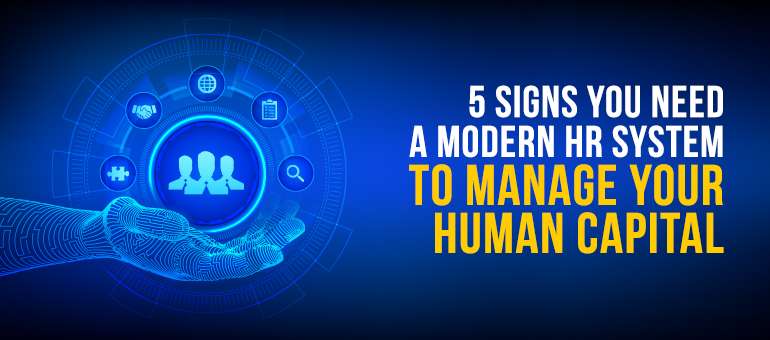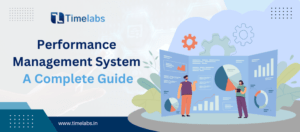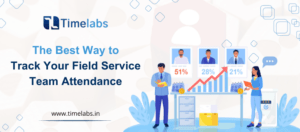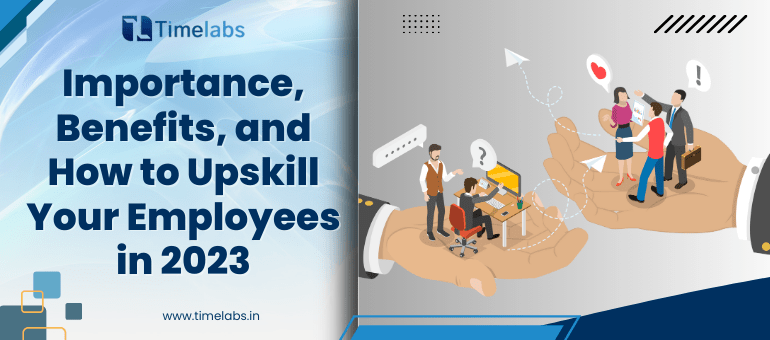According to a report from Work Institute, almost 1/3 of employees quit jobs because of uncooperative management and lack of improvement possibilities. Also, the study depicts that businesses can significantly benefit by appointing HR experts to effectively monitor leadership training in addition to general worker development possibilities.
HR tools need to develop in synchronization with your organization. Executing spreadsheets, taxes, and onboarding manually may look fine only when there are only a few workers in your team. However, the scenario considerably alters when a few become dozens. Managing expenses in advance might sound right. However, sticking on too tightly to your existing outdated HR software may hinder your business from developing your human capital and accomplishing strategic goals.
It is a given that as your business expands, both internal and external processes and structures will need to advance for your company to scale effectively. With the workforce being among the most crucial elements that enable development, the HR system that aids your staff will need to get better as you get bigger. Failure to upgrade can create extended company-wide risks, along with blunders ensuing in non-compliance or ineffective hiring resulting in stifled growth.
So how would you realize when is the correct time to upgrade your HR Software? If you are planning to wait for your systems, processes, and people to crumble, then that’s the end of everything. Understand and take action as soon as you spot these early warning signs of an outgrown HR system so that you can optimize your workforce management:
Insufficient functionality –
If you are an HR leader, you know that what matters the most is your people and not the software. Outdated systems like Excel spreadsheets and others require a massive amount of manual data entry and provide restricted functionality. The result is you get slowed down with manual administration, limiting you from working on strategic tasks which are more important for your enterprise. Advanced HR software program could aid you to tackle this with worker and manager self-service, enabling you to delegate obligation for recurring transactions. Besides saving time, it improves data accuracy, adheres to regulations, and can enhance worker engagement.Inconvenience in Employee Onboarding –
Recruiting and training an employee calls for a massive quantity of paperwork. In case your onboarding procedure is fragmented then it is probably time to consider an alternative. New personnel may have a connected device, however, they’re much less likely to own a fax machine/number or printer. Moreover, with so much compliance and training taking place throughout onboarding, it’s very much possible for crucial documentation to wander away or be overlooked. Digitalizing such procedures can store resources and offer a transparent route to onboarding success. Customized digital workflows make sure all critical records get assessed, organized, and stored in the ideal location.Poor compliance or risk management –
Missing files can produce compliance errors and that may result in expensive penalties and more inconveniences. So if you own loads of manual, paper-based HR or payroll procedures, it’s time to consider shifting to a paperless, virtual system that could facilitate and centralize the organization, data-keeping, search, and retrieval of all worker-associated HR records. A modern HR software will come up with the technology and procedure controls to maintain your records safely. In addition to that, it provides the organizational system that will help you preserve everything from benefits elections to yearly evaluations to training certifications. A modern payroll management software will make sure your organization stays compliant with federal, state, and nearby HR legal guidelines and tax jurisdictions. Digital HR and payroll management systems will aid you to accumulate and save compliance records and generate the reviews and filings you want to stay compliant with wage and labor legal guidelines.Repetitive Payroll Errors –
Payroll errors can cost you a fortune. Over-payment and under-payment both create complications. When the salary on which workers rely doesn’t hit their accounts at the agreed time, that would imply they receive unnecessary overdraft or late fees. This will in turn cause distress to employee morale or you will lose their loyalty to your company. If mistakes become regular, consider automating parts of the system with a payroll automation solution that reduces the probabilities for human error.No or Poor Data Backup –
Before a sudden and unexpected accident occurs and you lose all your valuable HR records, consider implementing a digital alternative. You can opt to digitize HR documentation, therefore transforming the paper-based system into digital files which would be simpler for personnel to get access to, sign, and return. If the subsequent HR system is cloud-based, the seller can be liable for the servers and information center(s) backing up your organization’s HR and payroll records, so that you can relax and ensure that your data is safe.Conclusion
If you spot these signs which imply that your current HR system is no longer adaptable, then you need to realize this and address the same as soon as possible. Outdated systems elevate the risk of non-compliance, affect productivity, and might even lower the growth rate of your company. Modern HR management software can put up better management and let HR executives focus on greater matters. The initiative to change is far less complicated than staying with the insufficient system.
Facebook
Twitter
LinkedIn
Pinterest
Email



